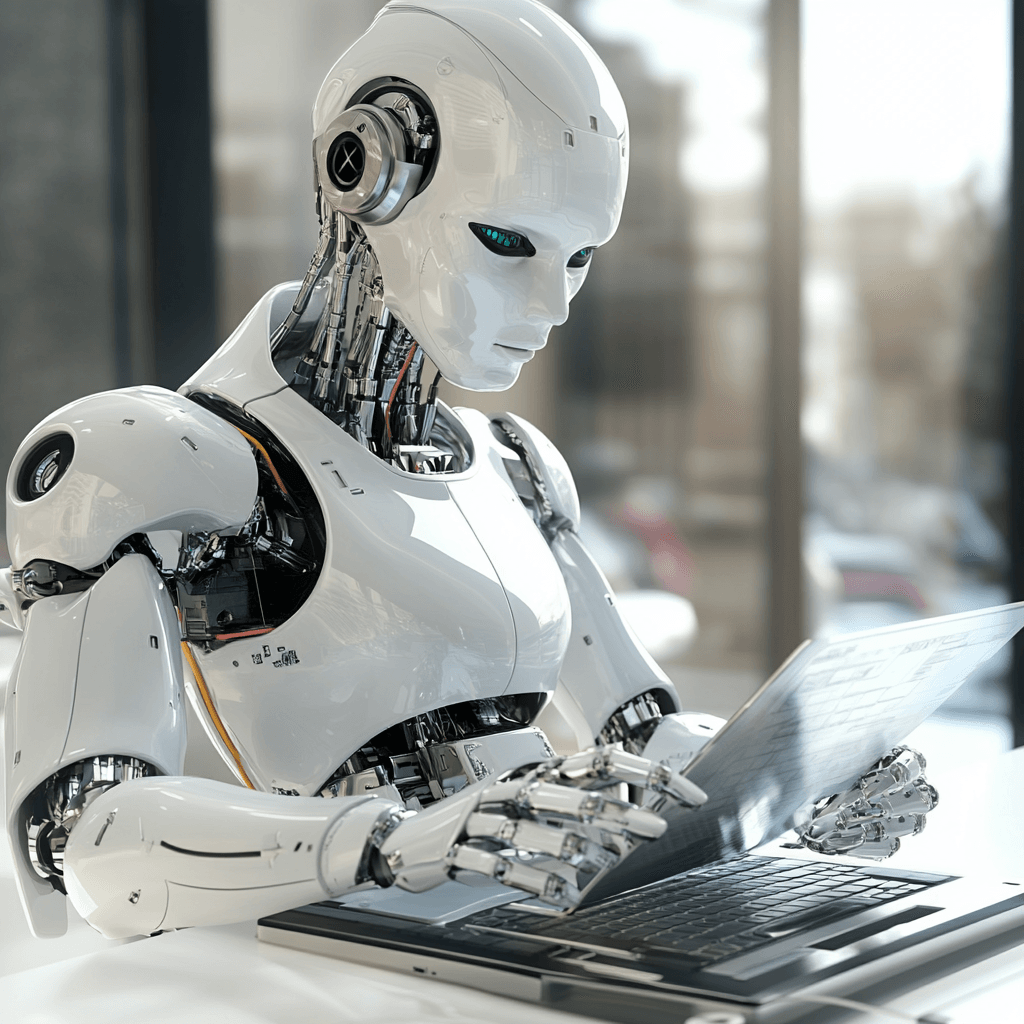
The rapid advancement of artificial intelligence (AI) has brought up a common question in the world of business: “Can AI replace my marketing team?” As businesses search for ways to maximize efficiency, reduce costs, and improve performance, AI seems to be the answer to many of their problems. From automating mundane tasks to providing data-driven insights, AI has proven its value in marketing. However, as powerful as AI can be, it’s important to understand the limitations and the role of human expertise in the marketing process.
In this blog, we’ll explore the realistic potential of AI in marketing, weighing its capabilities and limitations, and explaining why it’s unlikely that AI will fully replace your marketing team anytime soon.
1. AI in Marketing: The Current Landscape
First, let’s take a look at how AI is already being used in marketing. AI technologies are currently playing a significant role in various aspects of marketing, including:
- Data Analytics: AI excels at processing large datasets, uncovering patterns, and generating insights. Marketing teams use AI-powered tools to analyze customer behavior, predict trends, and make data-driven decisions.
- Automation: Marketing automation is one of the most significant applications of AI. Tools like HubSpot, Marketo, and Mailchimp use AI to automate email marketing, social media posting, lead nurturing, and customer segmentation.
- Content Creation: AI-powered tools like GPT (Generative Pre-trained Transformer) can assist with content creation by generating blog posts, email copy, and social media content. While the quality may vary, these tools have become valuable for content marketers.
- Customer Support: AI chatbots, such as those powered by machine learning, are frequently used to engage customers in real-time, answering questions, and providing assistance on websites and social media platforms.
- Personalization: AI allows businesses to deliver personalized experiences by recommending products, services, or content to users based on their previous behavior or preferences. For example, Netflix’s recommendation engine or Amazon’s product suggestions use AI to enhance user experiences.
As you can see, AI is already improving efficiency and enabling marketing teams to focus on higher-value tasks. But can it fully replace humans?
2. The Role of Creativity in Marketing
While AI can assist with data analysis, automation, and even content creation, one area where it still struggles is creativity. Creativity is at the heart of great marketing. The ability to develop unique, engaging campaigns that resonate with customers requires understanding human emotions, social trends, and cultural nuances—something AI cannot replicate in the same way that a human can.
AI can help generate ideas or optimize campaigns based on past data, but it cannot create the next groundbreaking marketing concept. It cannot replace the innovative spark that a talented marketing team brings to the table. Great marketers know how to tap into human emotions, create narratives, and tell stories that speak to their audience in a meaningful way. AI is a tool, not a replacement for this creative process.
For example, while AI can generate copy for ads or social media posts, it may lack the subtlety, humor, or emotional connection needed to truly capture a customer’s attention. Human marketers understand the context, tone, and emotional triggers that appeal to their target audience, something AI has yet to master.
3. The Need for Strategy and Critical Thinking
Marketing isn’t just about running campaigns—it’s about creating a strategy that aligns with business goals, customer needs, and market conditions. While AI can provide insights and recommend actions based on data, it lacks the ability to think critically and strategically.
Human marketers bring their experience, knowledge of industry trends, and intuition to the table when creating a marketing strategy. They know when to pivot, how to handle unforeseen challenges, and when to innovate. AI can analyze data, but it cannot understand the bigger picture or make strategic decisions that take into account all of the variables at play.
Moreover, marketing is not just about numbers; it’s about understanding people. Human marketers have a deeper understanding of emotions, relationships, and trust-building—key elements of effective marketing. AI may be able to perform tasks like A/B testing or optimize ads for conversion rates, but it cannot nurture long-term relationships with customers.
4. Human Touch and Customer Relationships
Customer relationships are a key element of marketing. In fact, businesses that build strong, personalized relationships with their customers often experience higher levels of loyalty and retention. While AI can handle customer queries and provide support through chatbots, it can’t replace the human touch that is necessary to foster deep, meaningful relationships.
When a customer reaches out with a concern or a question, they want to feel heard and understood. AI may offer an immediate response, but it’s not always able to provide the empathy or nuanced understanding that a human can. Additionally, AI might not be able to navigate complex or delicate situations in the way that a human customer service representative could.
In many cases, customers prefer to engage with a real person who can offer personalized recommendations, answer questions with empathy, and address concerns on a deeper level. Human marketers also have the ability to understand long-term trends and build relationships with influencers or partners that go beyond transactional interactions.
5. The Complementary Role of AI and Humans
Rather than viewing AI as a replacement for human marketers, businesses should embrace AI as a tool that can enhance the capabilities of their marketing teams. AI can automate repetitive tasks, provide data insights, and optimize processes, allowing human marketers to focus on higher-level activities like strategy, creativity, and relationship-building.
Here’s how AI and human marketers can work together:
- AI for Insights, Humans for Action: AI can analyze customer data and generate insights about consumer behavior, trends, and preferences. However, it takes a human marketer to interpret these insights and create a strategy that aligns with business goals.
- Automation for Efficiency, Humans for Connection: AI can automate tasks like sending emails, managing ads, or responding to customer inquiries. But human marketers can step in when a customer needs more personalized attention or when there’s a unique opportunity to connect with an audience.
- Optimization for Results, Humans for Innovation: AI can optimize digital marketing campaigns based on historical data, but humans are needed to inject fresh ideas and innovative approaches to keep the brand ahead of the curve.
6. Conclusion: Can AI Replace Your Marketing Team?
While AI offers a wealth of benefits to marketers, from automation to data analysis, it is unlikely that AI will replace human marketing teams. The creativity, critical thinking, emotional intelligence, and strategic vision that human marketers bring to the table are irreplaceable. AI can enhance these efforts, but it cannot fully replicate them.
Instead of seeing AI as a threat to your marketing team, view it as an opportunity to improve efficiency and scale efforts. By combining AI tools with the expertise and creativity of your team, you can stay ahead of the competition, deliver better customer experiences, and achieve your marketing goals—without losing the human touch that makes your brand special.
At Surch Digital, we believe in the power of AI to complement and elevate your marketing efforts. If you’re looking for ways to integrate AI into your marketing strategy while maintaining a human-centered approach, reach out to our team today and let’s explore how we can help you succeed.
